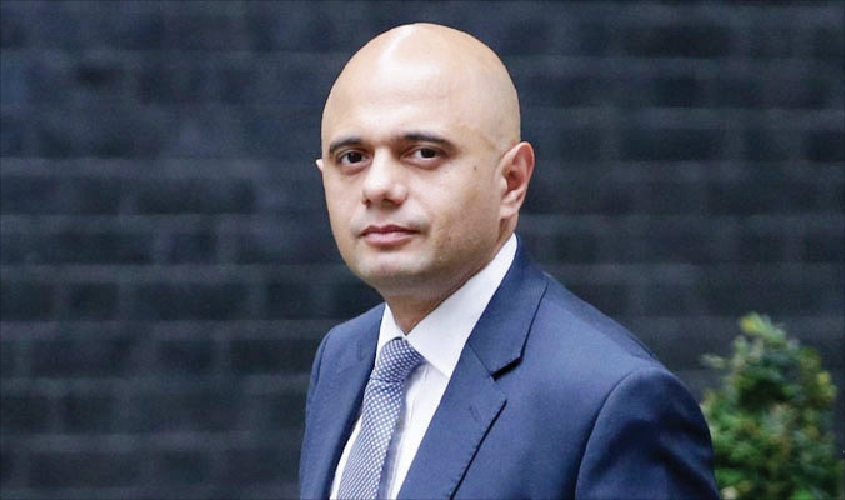Already UK has proscribed the extreme right-wing terrorist groups National Action, Scottish Dawn and Socialist Anti-Capitalist Action.
On 3 June all Londoners remembered the victims who died one year ago during the terror attacks on London Bridge and at Borough Market. On 4 June, UK’s new Home Secretary, Sajid Javid, released UK’s updated Counter-Terrorism (CT) Strategy, CONTEST, at the Southbank Centre in London. Javid said, “The threat to the UK today remains at severe, meaning an attack is highly likely. Our security and intelligence agencies are, right now, handling over 500 live operations, they have 3,000 ‘subjects of interest’. And there are a further 20,000 people who have previously been investigated, so they may still pose a threat.The biggest threat is from Islamist terrorism—including Al Qaeda, but particularly from Daesh.While the so-called caliphate is a thing of the past, Daesh continues to plan and inspire attacks both here and abroad as well as recruiting British citizens to fight.” He added extreme right-wing terrorism and Northern Ireland related terrorism are an increasing threat. Already UK has proscribed the extreme right-wing terrorist groups National Action, Scottish Dawn and Socialist Anti-Capitalist Action. Javid’s message was to eliminate all the safe places where terrorism evolveswith his six-point plan: * To investigate suspects earlier, give longer prison sentences and action better management of released terrorists. * CT funding to get an extra £50million and 1,900 extra security and intelligence staff. *Deepening of security alliances around the world, with Five Eyes and the EU irrespective of Brexit. * Working closely with new partners, businesses and private sectors outside government
Of extremists, Javid said, “I know they are not true Muslims. But there’s no avoiding the fact that these people self-identify as Muslims. Let me be very clear. Muslims are in no way responsible for the acts of a tiny minority who twist their faith…although we all share the responsibility for tackling terrorism, there’s a unique role for Muslims to play in countering this threat. British Muslims up and down the country are leading the fight against Islamist extremists by throwing them out of their mosques and by countering poison online and on the streets.”
Whilst everyone welcomes new CT measures some experts have additional insights. Chris Allen, Associate Professor in Hate Studies, University of Leicester, points out that sharing previously classified information about suspects may be in breach of human rights, and that by placing an onus of prevention on ordinary members of the public, unfounded prejudices can come into play. Allen cautions against undue scrutiny of Muslims’ everyday lives that could add fuel to the already active Anti-PREVENT lobby and reinforce the narrative that “Islam” and the “West” will never coexist. He quotes Simon Jenkins, author and broadcaster, “declassifying MI5 information will mean that nobody giving information to the state will be able to trust that their identity will be kept secret.”
Dr Rob Dover, Associate Professor in Intelligence and International SecuritySchool of History Politics and International Relations, suggests to avoid certain communities feeling targeting or victimised that terrorism of all sorts be referred to as political violence. He writes, “To focus on the politics is less inflammatory and more productive than focussing on the label ‘terrorist’, however strong all right-thinking people’s reflexes are towards instant action.” Dover believes in dislocating the insurgent from his/her base of support and “that in the long-term inclusion, integration and access to social mobility and economic wealth are far more important and persuasive levers of counterterrorism…ultimately bad actors will be stopped when more people feel they belong and that what they have and what their society has is worth preserving.”
The CT Lead Commissioner Sarah Khan said, “I will shortly be issuing a public call for evidence on the scale and the impact of extremism.”
In March 2016 the Ministry of Justice recommended policies to stop petty criminals becoming radicalised by extremist offenders in prisons; a recent Guardian analysis of the Sentencing Council has shown 40% of terrorism sentences will expire by the end of 2018; extremist offenders and others who have not completed their full prison term will be released. This and the discovery this week of UK’s first all-women/family extremist cell with deadly intentions makes CONTEST all the more relevant.

